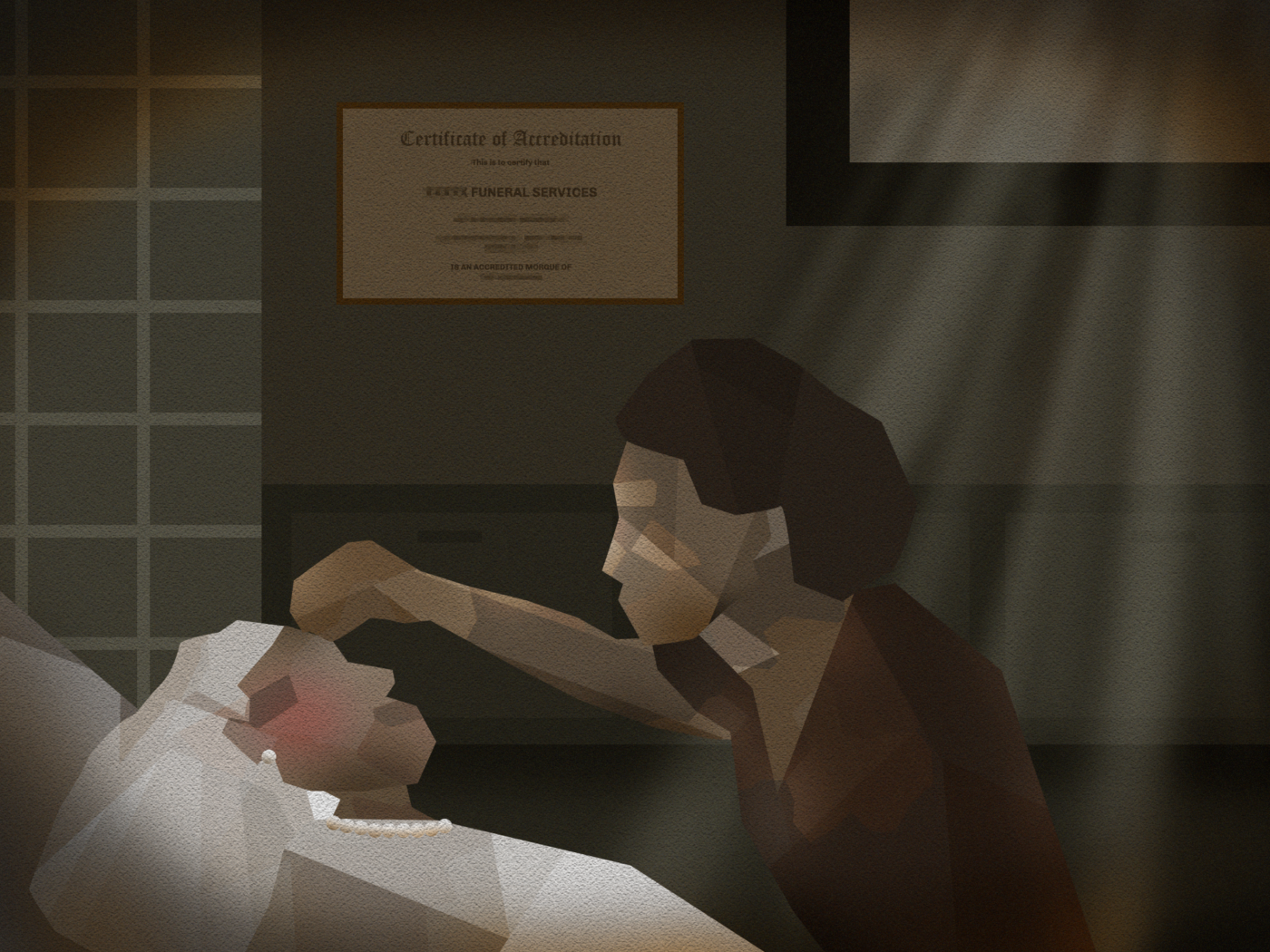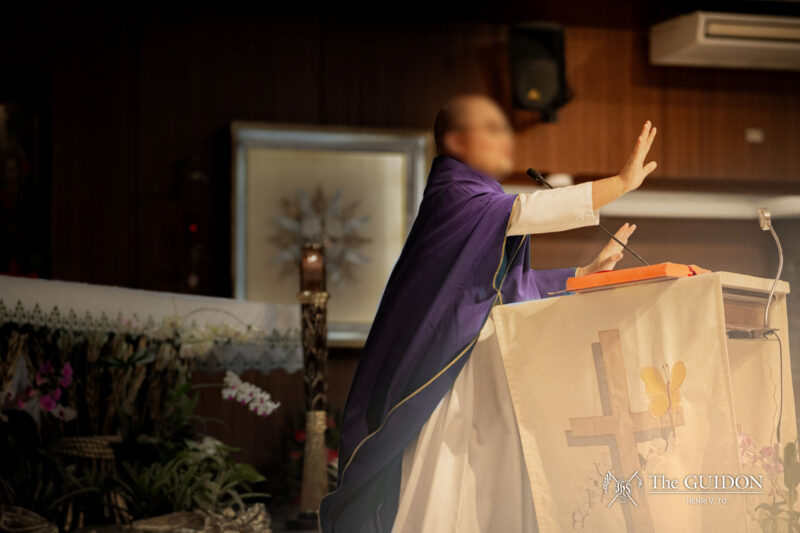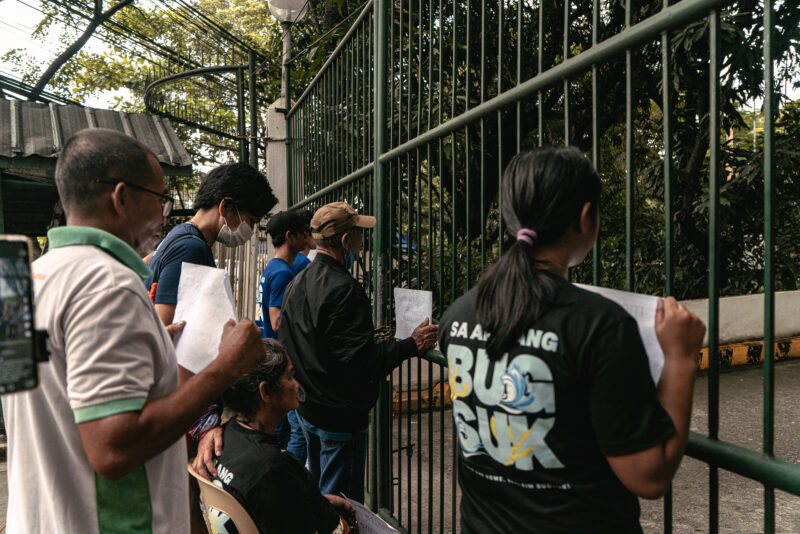Amid decay and deterioration, embalmers preserve the bodies of the dearly departed, restoring life even after death.
THE ONCE vigorous body has now sunken in a mask of death against the cold, gray mortuary stretchers. The pale figure awaits for somebody to prepare them. Notified by the funeral home they are working with, the embalmer rushes to the morgue. The deafening silence welcomes them as they perform the art of preserving bodies.
As the embalmer memorializes the dead, they brace themselves for the harsh reality that everyone has an inescapable conclusion. Taking care of the deceased, embalmers often go unseen and unappreciated due to the nature of their jobs. Nevertheless, they relentlessly undertake their profession no matter how disturbing it seems, while learning about life, death, and everything in between.
An incision to life
Handling dead bodies for a living is a daily reality for those who work in the embalming business. As they gaze into death’s eyes, they have to preserve the dead with the intention of giving them the respect they deserve. Such is the everyday life of CJ*, having been an embalmer for over six years.
CJ’s first task is to conduct autopsies or bodily examinations. The cadaver is then cleaned up and given a bath to make them look more presentable.
Next on the list is to clarify the choices of the bereaved families about embalming the deceased. “Embalming is a skeletal force, a skeletal job [so you need to] coordinate everything with the office about what the family wants,” he says. Finding out the family’s desires for their deceased loved ones matters, with embalming becoming more about personal preference nowadays.
“Sometimes, families ask unconventional things like hand positions. Catholics want their loved ones to have rosaries in their hand because of pamahiin (superstitions),” he adds.
After doing so, he now has to assess how much formaldehyde, a preserving agent, should be injected into the cadaver’s body. Because embalmers work with toxic chemicals, they must be well-versed in their field since the government inspects the sanitation of the establishment. “It is very strict. […] It is a tough job, so you cannot make a mistake [because] the slightest mistake can cost [you] your business,” he notes.
Unlocking closed doors
Behind the intricate and methodical procedures he faces in the present, CJ did not really think about becoming an embalmer. Coming from a family funerary business, his parents would randomly suggest him to pursue embalming. However, like the rest of his familial generation, he ventured out to other fields such as the automotive industry and information technology.
However, with nobody next to handle their family business, CJ had to step up rather than leave it at stake. Persuaded by his sense of duty, he became an embalmer out of necessity. Starting out as a helper, CJ rose to the ranks by becoming a driver, then an office worker, while studying embalming. He graduated at the top of his class, garnering a certain respect among his peers and in his family’s funerary business. For them, there is no mortuary without an embalmer. When there is no mortuary, there is no funeral home.
“I learned how to love—how to embalm,” CJ confesses. Through time, he was able to piece together the meaningfulness of death, and in due course, find his purpose.
“Nobody dies happy, so that is where I became interested. I want to put a smile on their face. The last expression that they should have is a guilt-free and pain-free death,” CJ says. This desire drove his interest in the aspect of human grief.
There are times that the bereaved would request to have a closed casket because of their loved one’s hideous blemishes and missing body parts. However, CJ shows them that it is still possible to make up for flaws, such as skin discolorations due to leukemia, or lost body parts caused by accidents.
Seeing their deceased loved ones as if they were sleeping, families cry and become satisfied that the departed get the decency and respect that they deserve. It is in these moments where CJ feels most satisfied, but like any other endeavor, he relinquishes his time, efforts, and parts of his sanity.
To love despite sacrifices
Being an embalmer entails constant physical and mental preparation. From the long hours to daily encounters with the dead embalming is not for the faint of heart.
CJ occasionally encounters souls that refuse to die, or rather, refuse to be embalmed. There are instances in the preparation room where cockroaches appear out of nowhere and chase him. Sometimes, a cadaver’s skin refuses to be punctured by a needle no matter how hard the pressure. Even in death, he believes that there are souls who still fight to the end.
Being in the mortuary business, CJ witnesses different kinds of deaths. Among all, embalming children is one of the hardest scenarios he has to deal with. He gets frightened when cadavers are the same age as his children, given they might end up in the same circumstance.
Instead of being haunted by the occasional ghosts that show up in his procedures, he is haunted by his natural curiosity to know. Every detail down to the bone, his questions and speculations follow him home. “You’re just trying to discover how they died so you don’t die like that,” CJ says.
Working in this field also has its fair share of discrimination. Growing up, CJ would be made fun of because of their family’s funerary business. “The best hanapbuhay (livelihood) is hanap-patay (looking for the dead),” his friends would often tease.
At times, even the bereaved do not see the work it takes to create meaningful and intimate wakes—from the drivers picking up cadavers to the embalmers preserving the deceased. Despite not being given anything in return, CJ is overjoyed when his staff occasionally receives praises and tips, because it means that the customers are happy. CJ simply treats the intolerance they face with the perspective that the funerary business is a discipline people could never understand, let alone value.
When the blot fades
“It’s sad that we go through death, but it’s a part of life. We should cherish the dead more. We should go to cemeteries remembering the people who die,” he emphasizes.
To CJ, death is a measure of how a life is lived and well spent. The ceremonies and wakes represent how much of an impact a loved one has created onto those left behind. Other material things become trivial when the living depart, leaving those above ground to appreciate the temporary presences and reflect on the lasting absences of the dead.
When the flowers eventually wither and the blots ultimately fade, CJ goes back to the cold and sterile preparation room. Despite the recurring fear and deafening silence, CJ continues to press on and ensures that the departed bid adieu in dignity.
*Editor’s Note: The interviewee’s name has been changed at his request to protect his identity and privacy.







